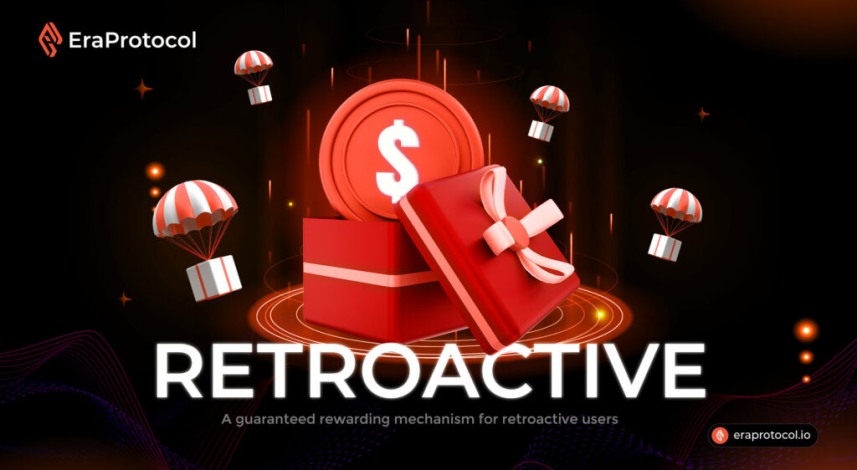
What is Retroactive?
Retroactive is one of the most popular forms of token airdrops, which allows participants such as past users, supporters, contributors to the development of the project, etc., to receive rewards in the form of tokens from the project itself.
Currently, the quantity, as well as the quality of airdrop projects, is constantly increasing. The value of these projects ranges from a few thousand dollars to even hundreds of millions of dollars and shows no signs of stopping. This is evidence of the appeal of participating in airdrops, especially the retroactive form.
The development of Retroactive
The origins of retroactive airdrops can be traced back to when Uniswap began its airdrop project to award $UNI tokens to users who had previously contributed to the project. Users would receive roughly $1600 worth of tokens in their wallets after the tokens were transferred and listed on exchanges. At that time, the value of a UNI token was around $3 to $4. Following the success of Uniswap, 1Inch also conducted two airdrops to award $1INCH tokens to traders who provided liquidity to the market. The value of these airdrops was estimated to be around $1700 for the first one and around $2400 for the second one.
The heat of the retroactive campaign just returned during the downtrend period starting at the beginning of 2022. Most crypto investors found no revenue from their investment in the cryptocurrency market as the price of all tokens fell significantly more than 50% of their ATH values. Crypto community started to find another way to make a profit and earn money from the market, which was also the time when retroactive and airdrop appeared as the only way to get the money reward from projects. Starting with the airdrop of Aptos, a Layer 1 network, which awarded all of its NFT holders a certain amount of token worth nearly 1000$, a fortune for everyone at that pessimistic time. Following that, many projects learned from Aptos and started to build their own retroactive campaign to attract users by offering a valuable reward
However, the only problem of retroactive campaigns is the uncertainty of being airdropped, which means that despite paying a myriad of efforts into completing the tasks for a long time, users may not be on the list of winners at the end.
Era Protocol as a solution.
To address these concerns, Era Protocol has proposed a solution that allows users to commit themselves to retroactive campaigns by depositing a certain amount of money in exchange for a guaranteed NFT Ticket. All revenue from the sale of the NFT will be deposited into the retroactive pool, which will serve two purposes:
- 80% of the retroactive pool will be distributed to chosen users as airdrop tokens at the end of the campaign.
- 20% of the retroactive pool will be used as Era Protocol’s revenue.
For retroactive winners, 80% of the retroactive pool will be airdropped to them under token form. For retroactive unchosen, they will receive a refund based on the value of guaranteed NFT, rather than losing everything as is common in other retroactive campaigns.
By offering this level of transparency and security, Era Protocol aims to create a more accessible and equitable retroactive model for users seeking to participate in Web3 projects.


